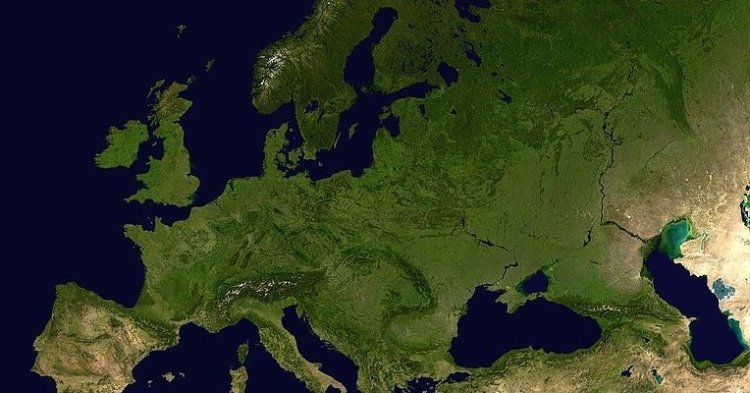This article dares to cast some light on the debate and provide a possible paradigm to approach the problem. The analysis will inevitably lead to the conclusion that, at present, the EU is not a power per se, and therefore cannot be held to decline or to grow. Rather, the real and main actors underpinning the functioning of the EU are its Member States (MS’s). Those MS’s are the ones really facing the edge of oblivion, the ones whose crisis and incapacity to act in a choral way are reflected in the perceived inaction of the Union.
The aim is to highlight that albeit the MS’s are the real declining powers, the EU as a whole can still play a major role on both the internal and international ground. However, to do so radical treaty reforms and new strong leadership are needed.
To begin with, the nation-state decline can be better conceived if understood under three different, albeit intertwined, issues. Firstly, the political mismatch between regional, continental and global problems and separate, individualistic and non-choral responses from single nation states. When we expect Europe to act in certain directions, such as a stronger international power, it is as if we ask to a blind to see. The treaty frameworks are restricting, ignoring or even prohibiting the Union capacity of action in crucial social, economic and policy-making fields. And even in certain fields, such as the foreign and security policy, where the intergovernmental approach should have been partially overcome, the old nation states (backed by all their clutters of different economic interests) retain, de facto, the real power. This causes a number of inefficiencies and weaknesses of the whole Union. However, before being a juridical or economic problem, these weaknesses and inefficiencies are a matter of perspective. In a number of fields not originally related with the economic union, most of the current political leaders are still rendering the Union as sort of feeble confederation. The result has already been enlightened by Mario Albertini at the dawn of the sixties [1]. To be short, the whole Union is collapsing in a diplomatic permanent board devoted to the settlement of disputes between different international relations approaches among the more powerful MS’s. As a result, the current EU is under the clear influence of the interests at stake, it is dominated by, rather being the leader of, the process.
Secondly, the economic overregulation and overprotection of markets, in addition to a Monetary Union without a European power controlling it casted in the past months serious doubts on the Euro’s survival perspectives. In particular, an internal currency control mechanism in the form of a political body able to influence the value of the currency is lacking. The previous diffuse and centrifugal approach is not feasible, and limiting the Union to control the inflation rates through a pool of technicians is not enough. As a result, these factors are deepening the currency rates dependency on the Dollar, and are rendering the Euro-zone susceptible to international financial speculation.
Thirdly, social uncertainty, poverty, diffuse scepticism and precariousness are both a result and a cause of this decline. Due to huge public debts, nation-states cannot give the necessary funds for technologic scientific research, or for maintaining an equitable welfare and giving at least the same basic opportunities to everyone. In return, this situation generates instability and unwillingness to take part in public life.
However, Europe as a whole remains one of the most populated, wealthy, rich and advanced areas in the world. Given that, if the potential related to the EU will be understood as a sort of holistic sum of the nation states’ resources and opportunities, it is not foolish to retain some hope for the future of the continent. The path to travel is clear and lies on an ever closer union and a strong democratization and accountability of the Union institutions.
The end of 2010 saw some positive achievements in this direction. First of all, the survival of the Union to the economic and financial crisis and the protection of weaker countries. In addition, the European External Action Service, a truly new diplomatic experiment, has become operational in a relatively short period of time and Estonia was the first post-communist country that adopted the single currency. Moreover, in December negotiations started to give Euro a permanent control mechanism that ended in the previous months.
Only a serious analysis of what the EU is and what it is supposed to become will lead to cast some light on its present and future perspectives. Commenting on the ratification of the Maastricht Treaty, Francesco Rossolillo affirmed in 1994 that “the creation of the European federation is outside the logic of reforming the Treaties. It presupposes the creation of a new constitutional structure and a break with the existing confederal order. This can only be the result of a dramatic political confrontation which will occur in a moment of crisis, pressurising the forces involved to take sides and deeply involving citizens [2] .”
Whether these assumptions were true or false, utopian or not, whether the next step should proceed from the European Parliament or some other sort of sovereign assembly, one thing is clear, and that is the need to further proceed from the current state of affairs. As the Shadow European Council reported in March [3] , the Federalists should “oppose the current tendency to increasingly resort to intergovernmentalism in European decision making, which amounts to nothing more that bargaining between national interests […]” and understand that “the only real way forward is by making decision based on the common interest of the European Union and its citizens”.

Follow the comments: |
|
